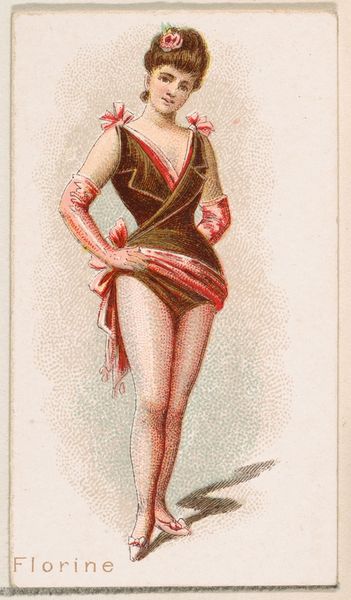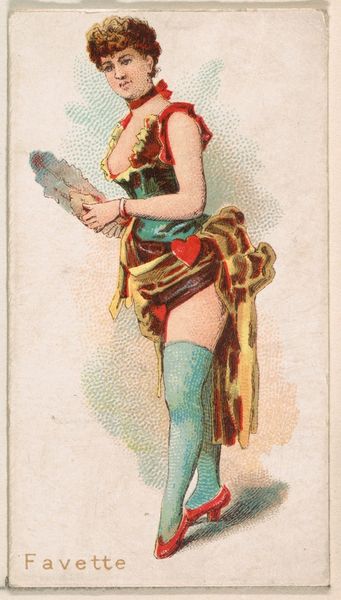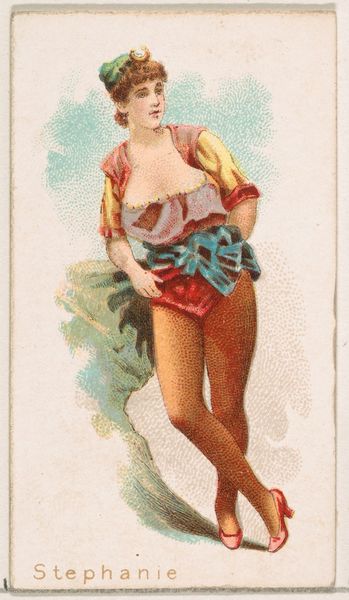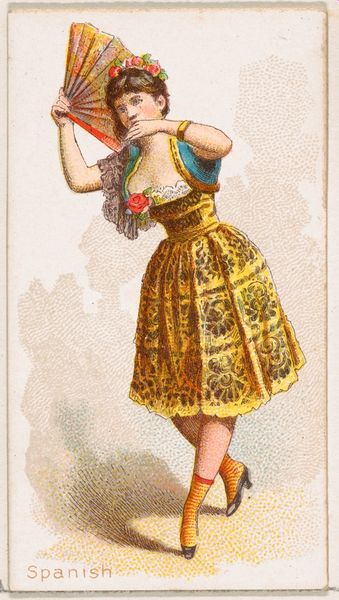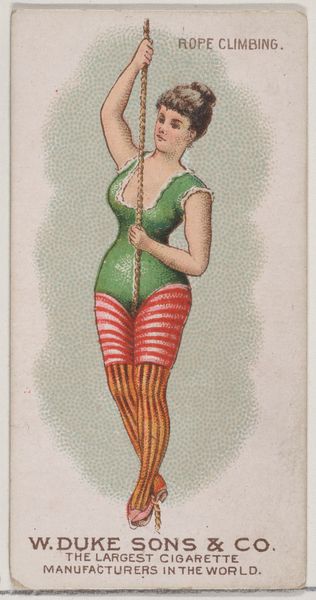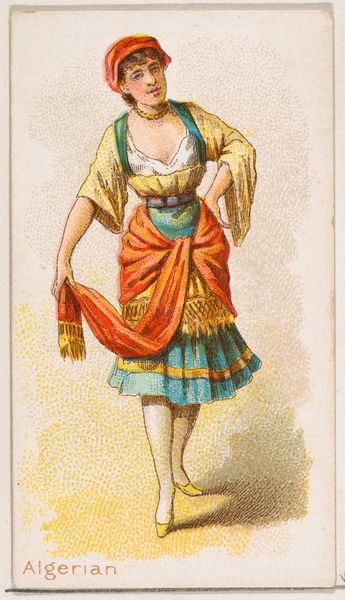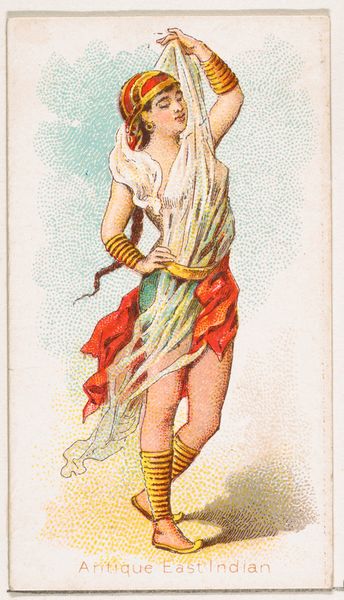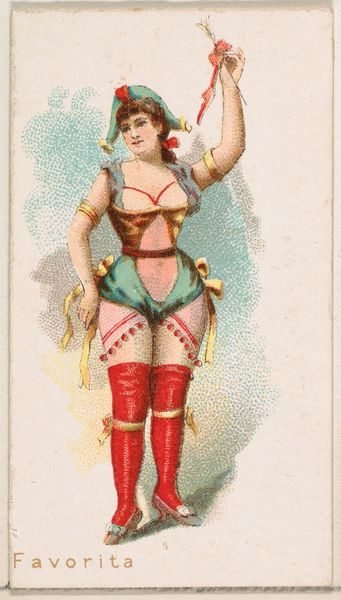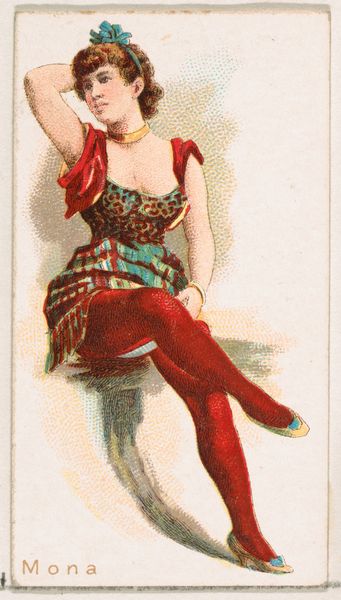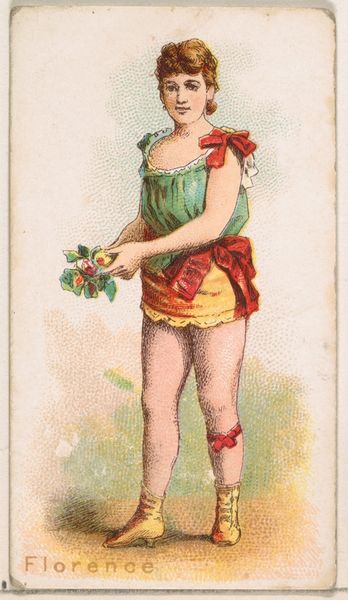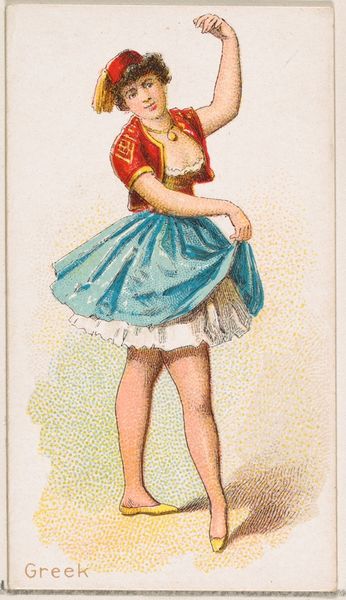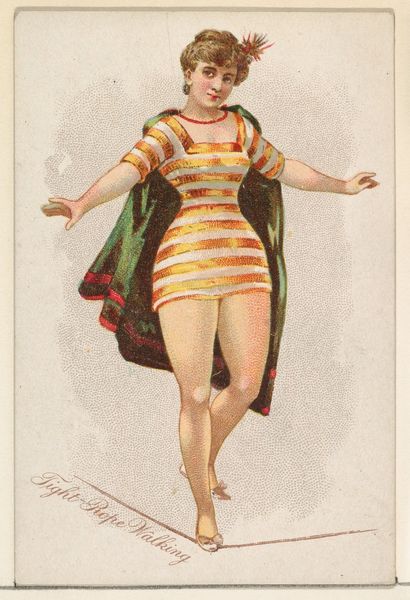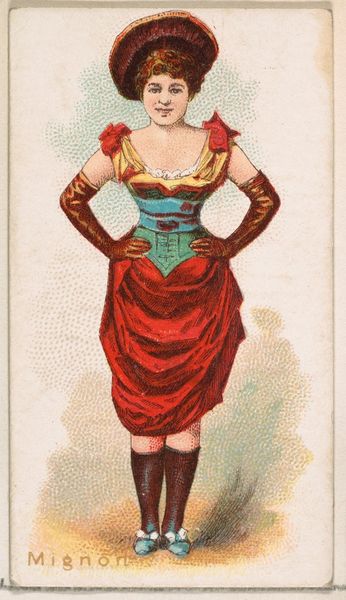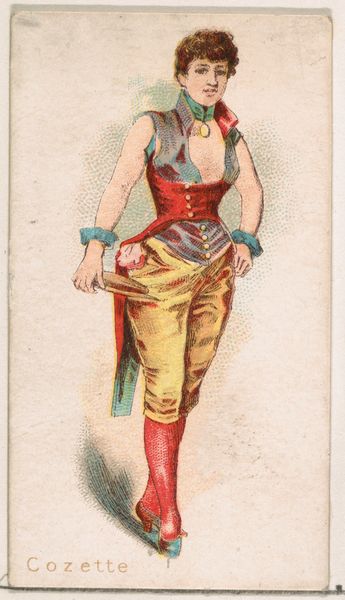
Austrian Dancer, from the Dancing Women series (N186) issued by Wm. S. Kimball & Co. 1889
0:00
0:00
Dimensions: Sheet: 2 11/16 × 1 7/16 in. (6.9 × 3.7 cm)
Copyright: Public Domain
This small chromolithograph of an ‘Austrian Dancer’ was created by the Wm. S. Kimball & Co., probably sometime in the late nineteenth century. Such cards were typically included in cigarette packs, acting as both a promotional tool and a collectible item. The image presents an idealised version of femininity, one that was fashionable at the time. These cards offered a glimpse into other cultures but also reinforced existing stereotypes. The dancer’s costume is a mix of theatrical flamboyance and supposed ‘ethnic’ authenticity. Consider the ways in which such images contributed to the construction of national and cultural identities during this period. To understand the cultural context fully, one might consult archives of advertising ephemera, alongside studies of popular culture and the history of advertising. Through this we can develop an understanding of how these images both reflected and shaped attitudes towards gender, culture, and nationhood.
Comments
No comments
Be the first to comment and join the conversation on the ultimate creative platform.
